What Are These "Cookies" (+ Why Deleting Them Helps)
An HTTP cookie is a small piece of data, usually in the form of a text file, sent to your web browser by a website's server. Your browser stores this file and sends it back to the server with every new visit, so the website can remember information about you and provide a more personalised experience.
What cookies do
- Session management: their key function – maintaining the continuity of a browsing session. They keep you logged in and remember your activity from page to page.
- Personalization: remember language, currency, theme, and other preferences to tailor the website experience for you on return visits.
- Tracking: record pages viewed and clicks to build a profile of your interests. This profile is then used primarily to deliver targeted ads. The privacy issue isn’t the cookie itself – it’s how third parties use the data. However, that’s the part most people want to reduce when they ask how to clear cookies.
Types of cookies
- First‑party vs. third‑party. First‑party cookies come from the site you’re on – generally necessary and expected. Third‑party cookies are set by embedded ad/analytics networks. The privacy concerns associated with cookies primarily relate to these third-party trackers.
- Example: walk into your favorite coffee shop; the barista knows your usual order – that’s a first‑party cookie: helpful, local, expected. Now imagine a stranger follows you from the café to the bookstore, then to the grocery store, notes what car you drive, and builds a detailed profile of your habits to sell to anyone who'll pay – that’s a third‑party tracking cookie.
- Session vs. persistent. A session cookie disappears when you close the tab/app. A persistent cookie can stick around for days, months, or even years, great for “Keep me signed in,” also useful (to advertisers) for long‑term profiling.
Cookies vs cache
People often confuse these two. It's simple:
- Cache stores parts of websites, like images and logos, to make them load faster on your next visit. It’s a speed booster.
- Cookies store information about you – your session, your preferences, your browsing habits. It’s an identifier.
When you clear cookies, you're deleting the identifiers. When you clear the cache, you're deleting pre-loaded web content. Although the process for clearing cookies on iPhone often includes both, they serve very different functions.
Benefits of deleting cookies
So, why bother? What's the real benefit of clearing cookies?
- Enhancing privacy: Deleting cookies can disrupt the cross-site tracking process used by ad networks to build detailed profiles of your online behaviour.
- Troubleshooting website errors: Corrupted or outdated cookies can cause errors on websites. Clearing them provides a 'clean slate' and often solves the problem.
- Enhance security:
- Hackers can sometimes hijack your cookies to gain access to your accounts in a session hijacking attack. While rare, deleting your cookies reduces this risk.
- On public or shared devices, clearing cookies logs you out of all accounts, protecting your information from the next user.
- Performance: Over time, thousands of cookies can build up and cause a slight but noticeable slowdown in your browser's performance. Clearing your cookies can speed up your browser.
Knowing how to clear cookies is a simple privacy habit with immediate, visible benefits.
Before You Tap ‘Delete’: Read This
You’ll be signed out of sites – make sure you know your passwords.
You will be signed out of almost everything – your email account, social media, shopping sites. It's a small inconvenience, but it's incredibly annoying if you aren't prepared. This is where a password manager or iCloud Keychain is very useful.
How to Clear Cookies on iPhone & Mac
These are quick steps for how to clear cookies on iPhone and Mac – both Safari and Chrome.
How to clear cookies on iPhone
How to clear cookies on Safari
1. Open Settings → Apps → Safari.
2. Scroll down to the section History and Website Data and tap Clear History and Website Data.
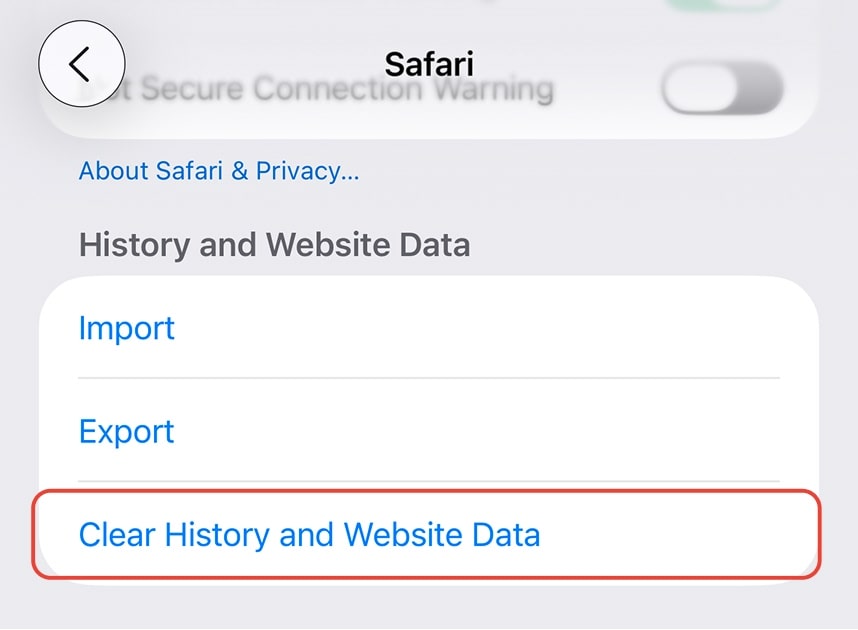
3. Choose Clear Timeframe (from the last hour to all history)
4. Optional: toggle Close All Tabs.
5. Confirm by tapping Clear History.
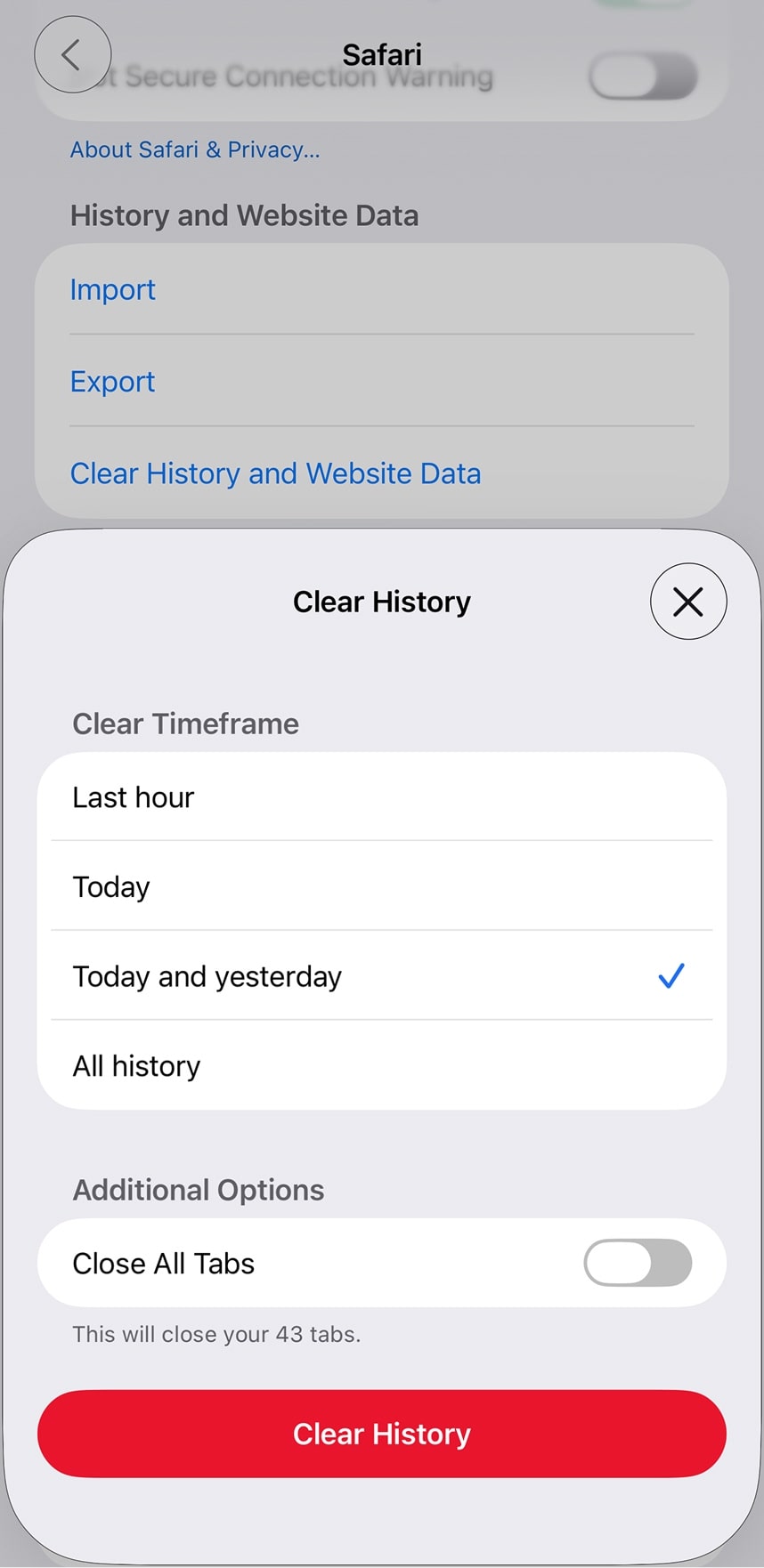
Per‑site cleanup in Safari
1. Settings → Safari → Advanced (at the bottom) → Website Data.
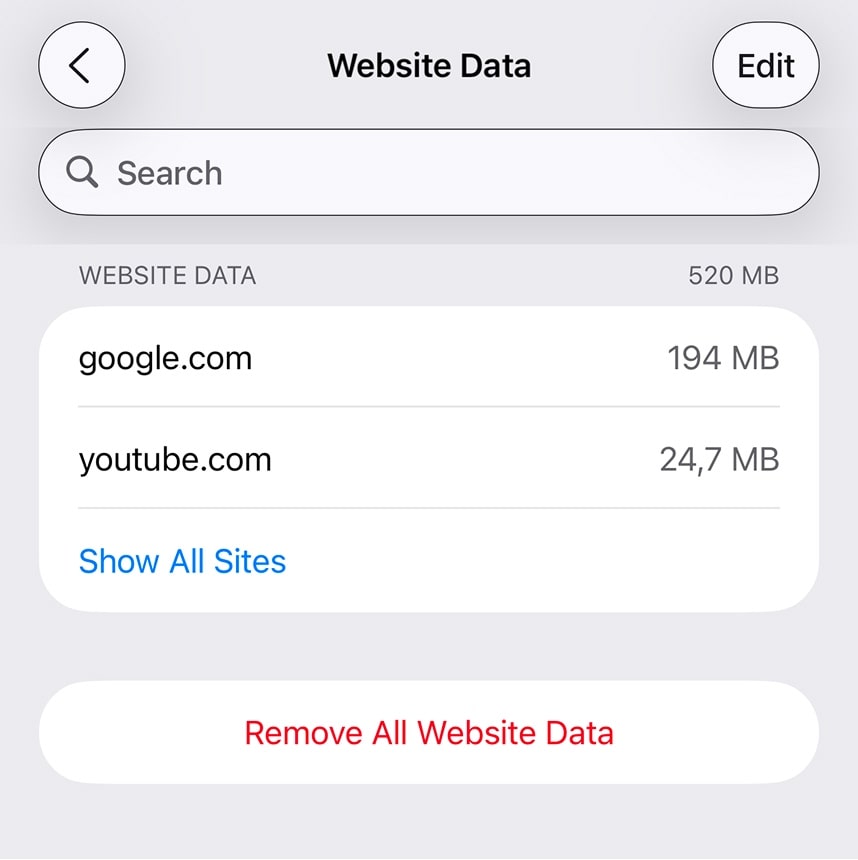
2. Use the search bar to find a domain.
3. Swipe left on the row → Delete, or tap Edit → select → Delete.
4. For a complete reset of site data only, tap Remove All Website Data.
5. To delete all data, tap Remove All Website Data → Remove Now.
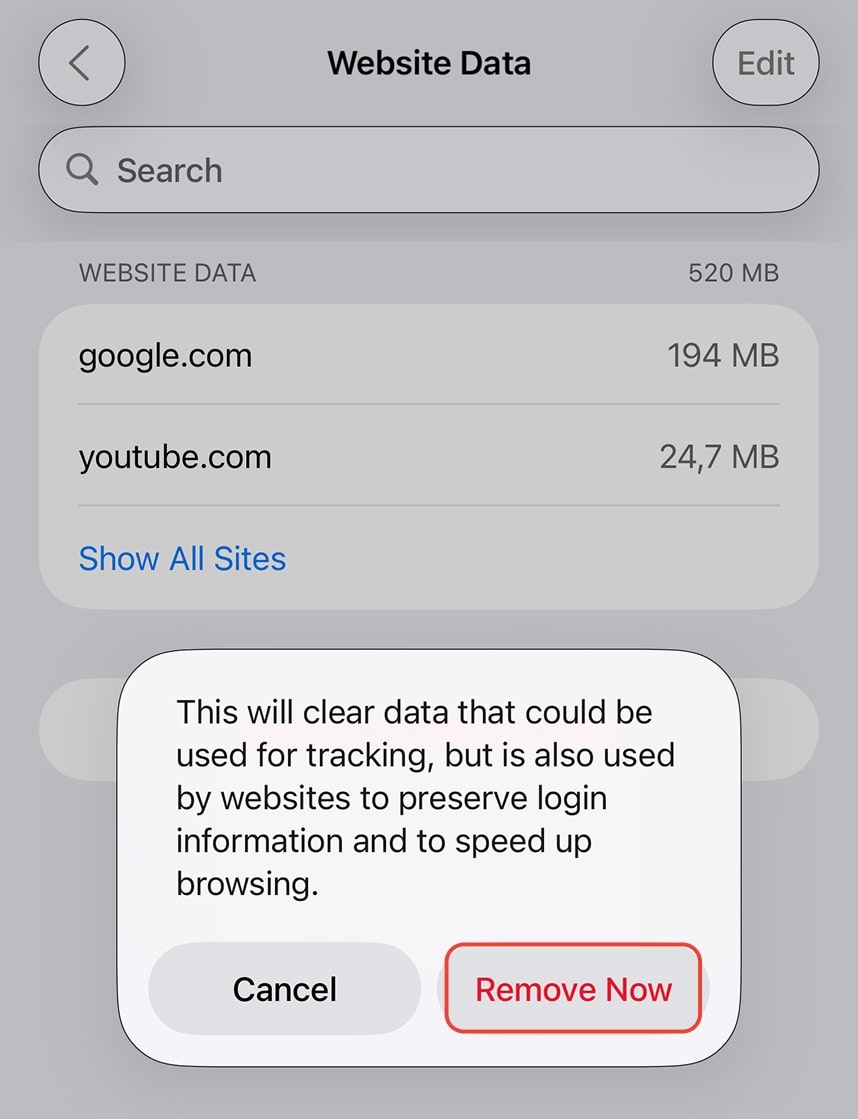
How to clear cookies on Chrome (iPhone)
1. Open Chrome → tap ⋯ (More) →
- Option 1: Tap Delete browsing data
- Option 2: History → Delete browsing data
- Option 3: Settings → Privacy and Security → Delete browsing data
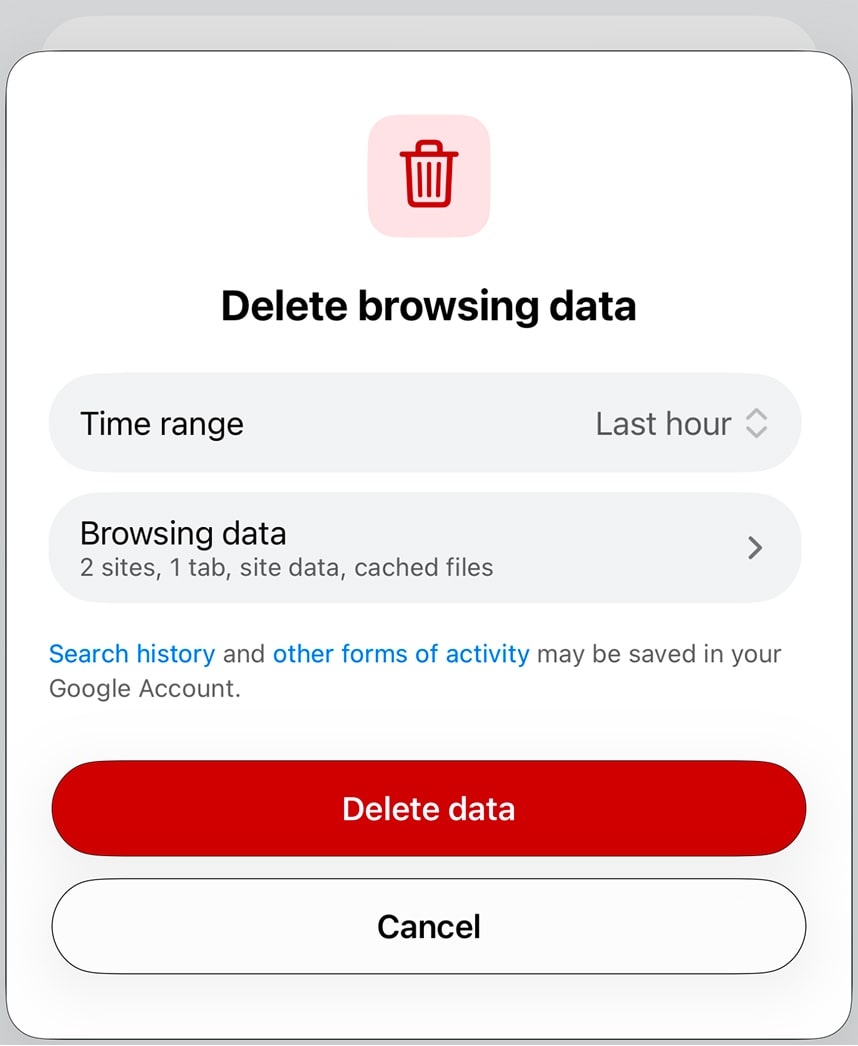
2. Choose Time Range (e.g., Last hour, All time).
3. Check Cookies, Site Data (optionally Cached Images and Files for visuals).
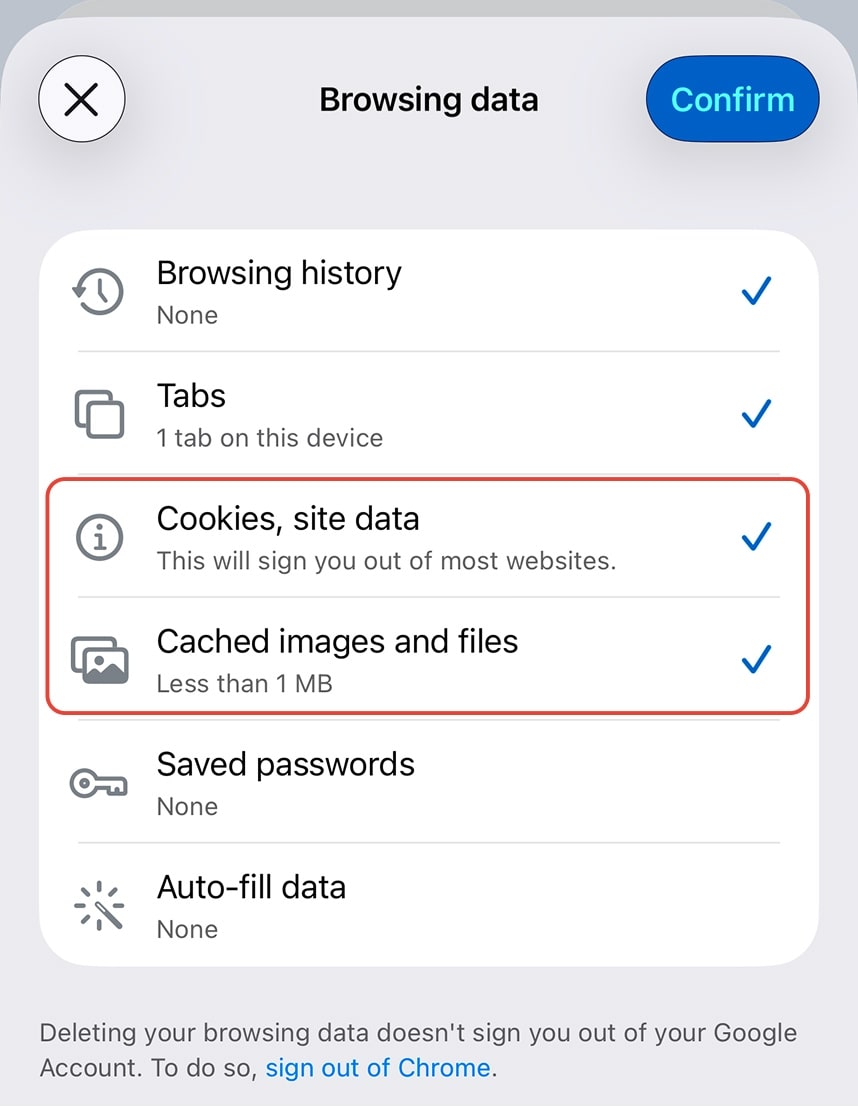
4. Tap Delete Data → confirm.
How to Clear Cookies on Mac
How to clear cookies on Safari
Per‑site or full reset via Privacy panel:
1. Open Safari → Settings (or Preferences on older macOS) → Privacy.
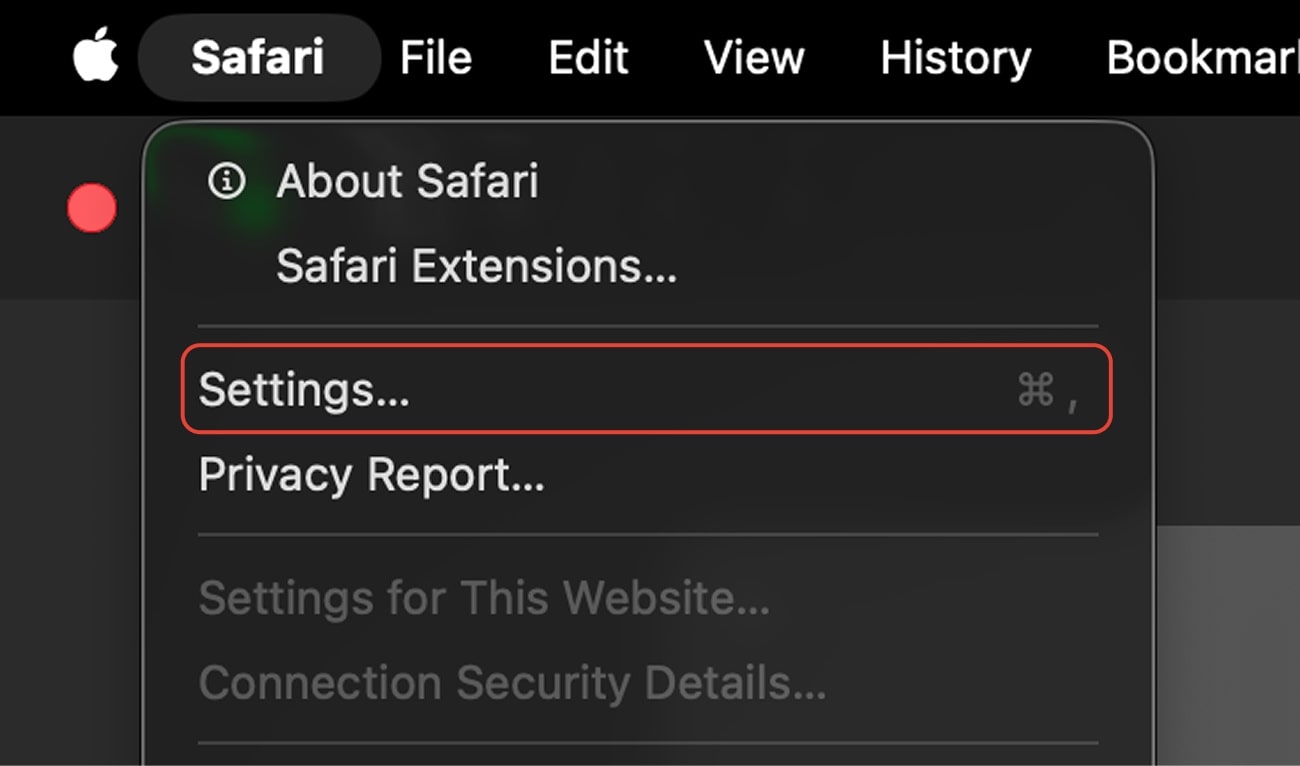
2. Click Manage Website Data…

3. Select individual sites → Remove (per‑site), or Click Remove All (full cookie + site data reset).
4. Click Done.
How to clear cookies on Chrome
1. Open Chrome → Settings → Privacy and security → Delete browsing data.
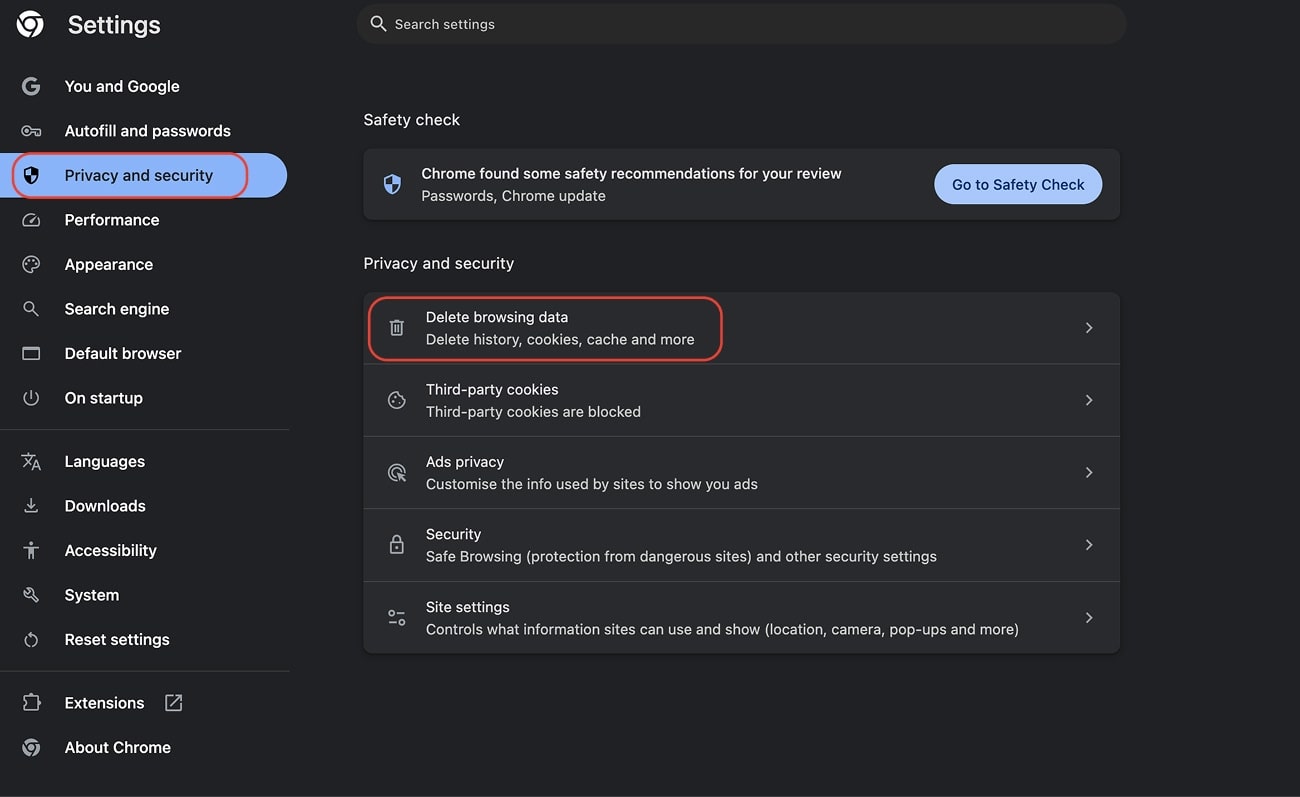
2. Choose Time range (e.g., Last 24 hours, All time).
3. Check Cookies and other site data (optionally Cached images and files).
.jpg)
4. Click Delete data.
Proactive Privacy Checklist (Do This, Stay Safer)
Learning how to clear cookies on an iPhone is a great first step. However, true digital privacy requires a proactive approach. It's about setting up a defence system so that fewer tracks are left in the first place. Here’s your checklist:
- Block cross‑site tracking (Safari) / restrict third‑party cookies (Chrome).
- Safari (iPhone & Mac): Settings → Safari → Prevent Cross‑Site Tracking (on).
- The Block All Cookies option provides maximum privacy but will cause many sites to malfunction.
- Chrome (iPhone & Mac): Settings → Privacy and security → Cookies → Block third‑party cookies.
- Use a private email service.
- Your email address is the master key to your digital life. It is used to link your activity across dozens of services, creating a shadow profile of you. The only solution is to use a secure, private email service.
- Enable two‑factor authentication (prefer app‑based).
- Use an authenticator app instead of SMS where possible. Less SIM‑swap risk.
- Run a content blocker; consider Private Relay/VPN for IP masking.
- Content blockers reduce third‑party scripts that set tracking cookies. Network‑level tools help prevent IP‑based correlation when you clear cookies regularly.
- Separate profiles/browsers for work, shopping, socials.
- Different containers mean fewer cross‑context leaks. You can clear cookies by profile if something breaks.
- Quarterly “clean sweep.”
- Set a reminder every 3 months to clear cookies, site data, and cache. It keeps sessions fresh and speeds up your device.
- Use browser extensions for granular cookie control.
- These extensions allow you to view, edit, create, and delete cookies on a granular level, as well as import and export them for development or testing purposes.
Frequently Asked Questions (FAQs)
Will clearing cookies log me out of everything?
Yes, you’ll be signed out of most sites. Make sure you have access to your passwords first.
Will clearing cookies delete my saved passwords?
No. Passwords stored in Keychain or your password manager remain. Deleting cookies does not delete any saved credentials.
Cookies vs. cache – what’s the difference?
Cookies: identity and preferences; used for logins and tracking. Cache: stored website assets (images, code) to help pages load faster.
Should I clear cookies every time I browse?
No, that's too much. It's about finding a balance between privacy and convenience. A quarterly sweep is a sane default.
How often should I clear cookies?
Quarterly as a routine; immediately when a specific site misbehaves. If you browse intensely, monthly isn’t overkill.
Is Private Browsing enough to avoid tracking?
Not even close. Private or Incognito mode only prevents your browser from saving your history and cookies on your own device for that session. It does absolutely nothing to prevent fingerprinting or hide your IP address from your internet provider and the websites you visit.
Can a website function if I block all cookies?
Many will not. Blocking all cookies can break essential functions like logging in or using a shopping cart. It is better to block only third-party cookies.
Can I allow cookies for one site but block others?
Yes. In Safari and Chrome you can remove data per‑site and leave others intact. Start there before doing a full wipe.
Do apps (not browsers) use cookies?
Native apps don’t use browser cookies, but they do store identifiers and tokens. Clearing browser cookies won’t sign you out of native apps.
What if a site breaks after I clear cookies?
Do a per‑site reset first. If it still breaks, also clear cache for that site, then reload. As a last resort, disable content blockers for that domain.
.jpeg)


